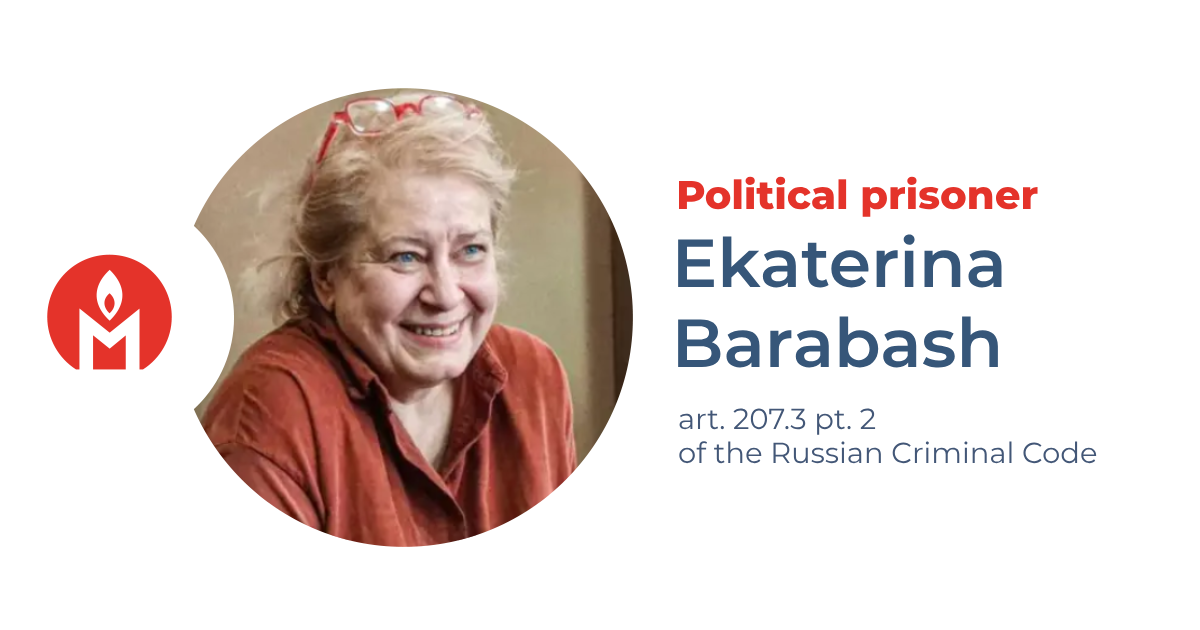Ekaterina Barabash is a political prisoner
A Moscow-based journalist has been placed under house arrest for anti-war posts on Facebook
The ‘Political Prisoners. Memorial’, in accordance with international standards, considers Ekaterina Barabash a political prisoner. Barabash is being prosecuted on a criminal charge of spreading information known to be false about the Russian army for anti-war posts on Facebook. Her criminal prosecution violates her rights to freedom of expression and a fair trial. We demand the release of Ekaterina Barabash and that all criminal charges against her be dropped.

Who is Ekaterina Barabash and what are the charges against her?
Journalist and film critic Ekaterina Barabash, born in Kharkiv, currently lives in Moscow with her 96-year-old mother. From the very beginning of Russia’s full-scale invasion of Ukraine, Barabash openly spoke out against the war on her Facebook page.
On 25 February 2025, Barabash was detained and charged with spreading politically motivated ‘fake news’ about the army (Article 207.3, Part 2, of the Russian Criminal Code) in connection with four anti-war posts.
In one, published on 16 March 2022, she wrote: ‘Bastards – they, you see, want Ukraine as a friend, Ukraine as a good neighbour. So they come onto someone else’s land with their tanks, APCs and future corpses in uniform and with automatic rifles? So, you, scum, bomb the country, raze entire cities to the ground, kill a hundred children, shoot peaceful people for no reason, put Mariupol under siege and deprive millions of people of a normal life, forcing them to flee to foreign countries?’
On 26 February 2025, a court placed Ekaterina Barabash under house arrest. She faces up to ten years’ imprisonment if convicted.
Why do we consider Ekaterina Barabash a political prisoner?
The offence of spreading information known to be false about the Russian army, for which Ekaterina Barabash is being prosecuted, was introduced into the Russian Criminal Code immediately after the beginning of Russia’s full-scale war against Ukraine. The law effectively prohibits any criticism of the Russian authorities or military, in violation of the civil right to freedom of expression. This law contradicts the Russian Constitution and therefore any prosecutions based on it are unlawful.
An anti-war stance and drawing public attention to war crimes should not be considered an offence. We believe criticism of the war is beneficial to society and therefore cannot be grounds for a criminal prosecution, let alone imprisonment.
A detailed description of Ekaterina Barabash’s case and of our position is available on our website.
Recognition of an individual as a political prisoner does not imply the ‘Political Prisoners. Memorial’ human rights project agrees with, or approves, their views, statements, or actions.
How can you help?
You can donate to help all political prisoners in Russia.
